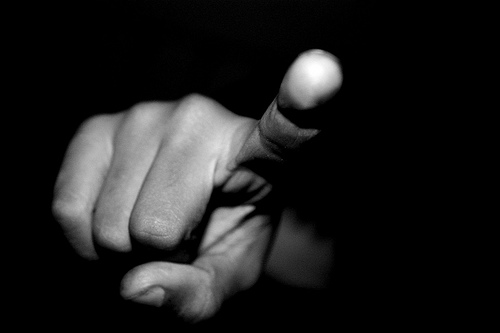(Expert Feature) To “Out People” on Twitter or Not: The Ethical Side of Social Media
Lately, a few incidents have occurred that question the morals and ethics of individuals who use Twitter to “out people”.
The question is, “Should people publicly ridicule, shame or call out customers, co-workers, friends or others for their bad behavior?”
Beverly Hills Restaurant Owner Calls Out Customers
The first story involves a Beverly Hills restaurant, Red Medicine, who’s owner became understandably upset when 20% of his reservations failed to show up. The owner, Noel Ellis, decided to publicly shame these customers in public tweets that include the names of no-shows.
The aftermath included both supporters and those who disapproved vehemently.
Articles by the LA Times, New York Daily News and the Huffington Post, talk about the positive and negative reactions of readers and peers in the restaurant industry. Some customers even posted negative reviews on Yelp!– now there’s a reputation management project we’d love to get our hands on . . .
Woman Publicly Shames Two Over Sexually Harassing Jokes
The second story involves a woman named Adria Richards, a now former employee of SendGrid who snapped a picture of two attendees at PyCon who were telling sexually harassing jokes while seated behind her in a conference session.
She tweeted the photo, including the conference hashtag. The attendees were fired from their jobs; Adria was fired from her job when the backlash brought her company’s website to its knees via a suspected hacking.
The question about whether or not the discussion between the attendees was sexual harassment has been discussed endlessly online and is not the topic of this article.
However, we are questioning Adria’s tweet that publicly identified and shamed the perpetrators.
Mashable posted a poll in their article on this very subject, asking people if they thought Adria should have left out the photo and their identities.
The overwhelming response was “YES.”
“Just because you can, doesn’t mean you should.”
by Lt. Col. Carlos A. Keasler, U.S. Army, Retired in his book, “Lest We Forget”
Does Publicly Shaming People Make Sense?
One must ask whether or not publicly shaming people makes sense.
Before social media, the proper process for reporting inappropriate behavior was to report it privately to a superior or to Human Resources.
In a public situation such as a conference, speaking with the conference organizers privately would probably be the most appropriate way to handle a delicate situation.
In the case of the restaurant owner, since the restaurant collected phone numbers, the appropriate action would have been to simply call people to see if they were okay and whether or not they planned to show up.
Why does social media make us drop all the rules of etiquette, proper process of reporting and the morals and ethics of humankind simply to shame people publicly?
What do you think?
Tell us your thoughts in the comments below.
We’d love to hear from you.
Photo by Sudhamshu
Related article
- (Expert Feature) Mobile Phones at the Dinner Table – Acceptable or Etiquette Nightmare? (baybusinesshelp.com)



It’s that whole arm’s-length phenomenon, I think. The extra layer of removal makes it a lot easier to be aggressive/vengeful. Good post.
Thanks for your comment, Hillary. Good point – it’s easy to think you’re just a small voice out there amongst all the noise, right? Glad you liked my post!
I agree with Hillary. Do we really think that just because it is easier to use social media, do the app being on our phones and readily available, that we can just vent when upset? We think, “no one important will see it anyway”. This example and new etiquette challenges will be with us for as long as we come out with new ways to communicate.
I try not to roll my eyes each time I read about a new story about how we abuse a communication platform.
Roll away, Kent – I do!